
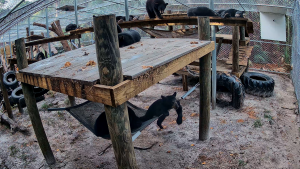
We’re now caring for 14 bear cubs inside our Black Bear Rehabilitation Center and 15 bear cub patients in total.
Editor’s Note: The Florida Fish and Wildlife Conservation Commission’s (FWC) Bear Management Program works closely with Brevard Zoo and other partners to ensure orphaned black bear cubs not yet able to survive on their own are given the best chances at successful rehabilitation and eventual release back into their natural habitat. FWC Bear Management biologists are scheduling releases of rehabilitated bear cubs born this year to be done in January 2026, which is outside of Florida’s black bear hunting season set for December 2025. Additionally, rehabilitated bear cubs will be released into habitat that is not part of current established bear hunting zones. The FWC aims to release rehabilitated young bears on public conservation areas that have high quality bear habitat and low density of both bears and people to give them the best chances for survival.
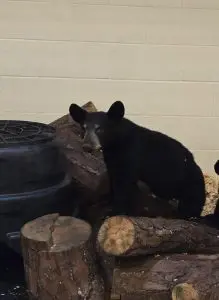
This is Banana!
When Florida black bear cubs Banana and Squash were found without their family, they had nowhere to turn. In instances like these, it’s difficult for cubs to survive on their own without a mother to teach them key survival skills like foraging for food, climbing and more.
We’re not sure what happened to Banana and Squash’s mother—but luckily, we’re here to help! Our partners at the Florida Fish and Wildlife Conservation Commission swiftly transported the sibling duo to our Zoo, where they received a full examination to check on their condition.
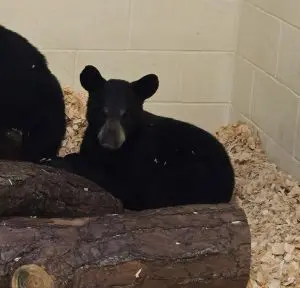
Meet Squash!
Banana and Squash were deemed to be in good health, so they were quickly able to join the rest of our cub patients residing in our Black Bear Rehabilitation Center, including (take a big breath with us) Rickie, Morty, Frosty, Fern, Branch, Berry, Curly, Larry, Mo, Blaze, Luke and Leia. Phew! That brings us to 15 cubs and counting!
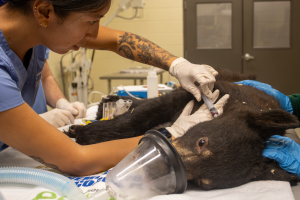
Jon Bear gets his blood drawn during his re-check veterinary exam.
The only bear living outside of our 3,500-square-foot Rehabilitation Center is a yearling cub named Jon Bear, whose story we recently shared on our blog. To give you a recap, Jon Bear came to us in terribly poor condition at a measly 23 pounds—far below what’s expected for his age. With ticks, internal parasites, patches of missing fur and anemia, we knew Jon Bear had a long road to recovery.
This tough bear has only been with us for a bit over a month now, but we’re happy to share that he’s made tremendous progress. His fur has almost fully grown back, and he now weighs over 65 pounds! He will remain in our L3 Harris Animal Care Center as our bear and veterinary teams work out some of his varying illnesses, but nearly tripling his weight in such a short amount of time is a major milestone for Jon Bear’s recovery. Check out Jon Bear’s progress here. Viewer discretion is advised, as his initial condition may be disheartening to see.
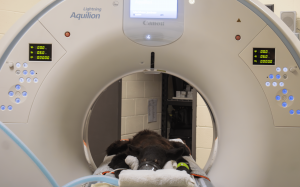
Jon Bear is one of our toughest patients yet!
Despite handling such tragic cases, transforming cubs like Jon Bear only reaffirms our commitment to supporting and conserving Florida black bears across the state. We are grateful for every chance to give these bears a fresh start!
“This year has been a record year for cubs not only for us, but also for Florida as a whole,” said Director of Animal Programs Lauren Hinson. “We are super happy to be able to provide medical care for these cubs and give them the opportunity to live outside and carry out natural behaviors. It has been rewarding to watch them grow and learn to be bears.”
Check back on our social media channels and blog for more updates!
We would like to thank the following generous donors for supporting our mission-based programs:
Flammio Financial Group · Stifel- Garvin Wealth Management Group · Artemis IT · Pepsi Bottling Company · Amazon · PCL Construction | Nassal | MEC | Heard
Contact FWC’s Wildlife Alert Hotline at 888-404-FWCC (3922) if you have found a sick, orphaned, injured or dead Florida black bear. You can also leave feedback for FWC commissioners regarding FWC’s Bear Management Plan here.